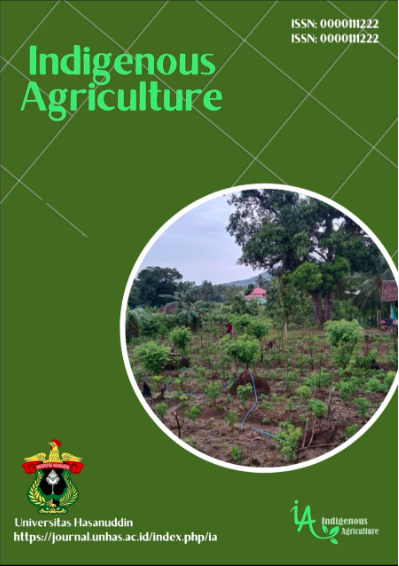Main Article Content
Abstract
Patchouli oil is an important raw material that acts as a fixative in the perfume, cosmetics and pharmaceutical industries. The high demand for Indonesian patchouli oil in the international market has made Indonesia a major producer of patchouli oil. Kabangka District, located in Southeast Sulawesi province, is a potential patchouli development area supported by increased patchouli production and area. This area is also transmigrant, so farmers in this area consist of Javanese, Bugis, and local residents, namely the Muna tribe. Farming carried out by these three tribes produces different levels of welfare. Welfare is influenced by the motivation and work ethic of the farmers themselves. This study aims to compare the motivation and work ethic level of Muna Tribe Farmers, Bugis Tribe Farmers, and Javanese Farmers in Kabangka District, Muna Regency, Southeast Sulawesi. The method used was descriptive quantitative with the Kruskal Wallis H test analysis tool on 86 samples from 861 populations, consisting of 35 Bugis Farmers, 35 Javanese Farmers, and 16 Muna Tribe Farmers. The results showed significant differences in motivation and work ethic between Javanese Farmers – Muna Tribe Farmers and Bugis Farmers – Muna Tribe Farmers, while there were no significant differences between Javanese Farmers – Bugis Tribe Farmers.
Keywords
Patchouli oil; Farmers; Motivation; Work ethic; ,
Article Details

This work is licensed under a Creative Commons Attribution-ShareAlike 4.0 International License.

